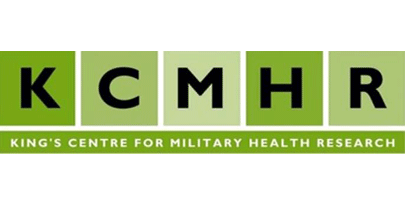British veterans with combat injuries at greater risk of cardiovascular disease
British soldiers injured in Afghanistan may have a higher risk of heart disease and stroke, compared to their uninjured colleagues.
These are among the first findings to emerge from a study of more than 1,100 British veterans of the war in Afghanistan, more than half of whom sustained a battlefield injury while serving, such as loss of limb or a gunshot injury.
The ADVANCE study (Armed Services Trauma Rehabilitation Outcome Study) was set up to investigate the long-term physical and mental health outcomes of battlefield casualties from the UK Armed Forces following deployment to Afghanistan between 2003 and 2014. The work is a collaboration between Imperial College London, King’s College London and the Ministry of Defence.
In an analysis of preliminary data, researchers found that in the years since returning home, veterans who sustained combat-related injuries had a significantly increased risk of cardiovascular disease compared to veterans who returned home uninjured. This included higher levels of lipids and sugar in the blood, greater waist circumference, and stiffer arteries.
Their findings are published in the journal Heart and were presented at the recent annual conference of the American Heart Association.
Professor Paul Cullinan, from the National Heart & Lung Institute at Imperial College London, and study lead for Imperial, said:
“It is gratifying to see the first findings from the ADVANCE study published. However, it’s important to remember that these findings are from the baseline data analysis, and we will be following the participants for another 16 years. The long-term impact of these early findings for these veterans are still unknown and will be of major research interest over the course of the study.”
EARLY FINDINGS
In the first analysis to come from ADVANCE, researchers examined baseline measurements for all participants. They investigated whether battlefield injuries increased the risk of metabolic syndrome – a cluster of risk factors that increases the chance of a cardiovascular event, including abdominal obesity, altered lipids, raised blood pressure and increased blood glucose – as well as arterial stiffness.
The team looked at data from 1,144 male veterans, with an average age of 26 years at the time of their injury/deployment and 34 years at the time of their baseline assessment for the study.
More than half of the men (579) had experienced a traumatic injury, such as loss of limb or gunshot injury, and 565 men returned home injury-free. The injured were far less likely (28%) than the non-injured (80%) participants to be still serving in the military. There was no difference in smoking status, ethnicity or family history of cardiovascular disease between the two groups.
Among all veterans who returned home with physical injuries, 18% had metabolic syndrome, compared to 12% of the men who did not sustain an injury. In a subset analysis of the injured veterans, 21% of those who were severely injured had metabolic syndrome.
Injured men had a higher measure of arterial stiffness, called augmentation index, 17.6% compared to 15.2% in injury-free veterans, which indicates increased stiffness of the heart’s arteries. The augmentation index among the severely injured veterans was even higher at 18.2%.
INCREASED RISK
“The trend is very consistent. In the injured, the triglyceride counts were higher, the HDL (good cholesterol) counts were lower and the injured had a much greater proportion of visceral fat than the non-injured,” said Dr Christopher Boos, consultant cardiologist at University Hospital Dorset and one of the ADVANCE principal investigators. “The injured had a nearly 50% higher hs-CRP value, a marker of vascular inflammation. Although it was still within the normal range, higher is worse.”
The authors highlight that a number of other factors influencing potential cardiovascular risk, such as diet, posttraumatic stress disorder (PTSD) and depression, or chronic pain, have not yet been examined, but that they will be the subject of further research for ADVANCE.
They explain that continued follow up of participants will be crucial to understanding the long-term clinical implications of combat-related injuries.
Dr Boos added:
“Because of the advances in modern medical care, people are surviving battlefield injuries they never would have 50 years ago. As a result of the Iraq and Afghanistan conflicts coming in rapid succession of each other, we have many veterans with combat injuries for which we don’t understand the long-term psychological and cardiovascular outcomes. It was important to undertake this study to better understand the long-term psychological and medical outcomes of these individuals.”
‘Association between Combat-Related Traumatic Injury and Cardiovascular Risk’ by Christopher J Boos, et al. is published in Heart. DOI: 10.1136/heartjnl- 2021-320296.
To find out more about the ADVANCE Study visit the study website or follow the study team on Twitter, Facebook and LinkedIn.
This was article was first published Imperial News.
